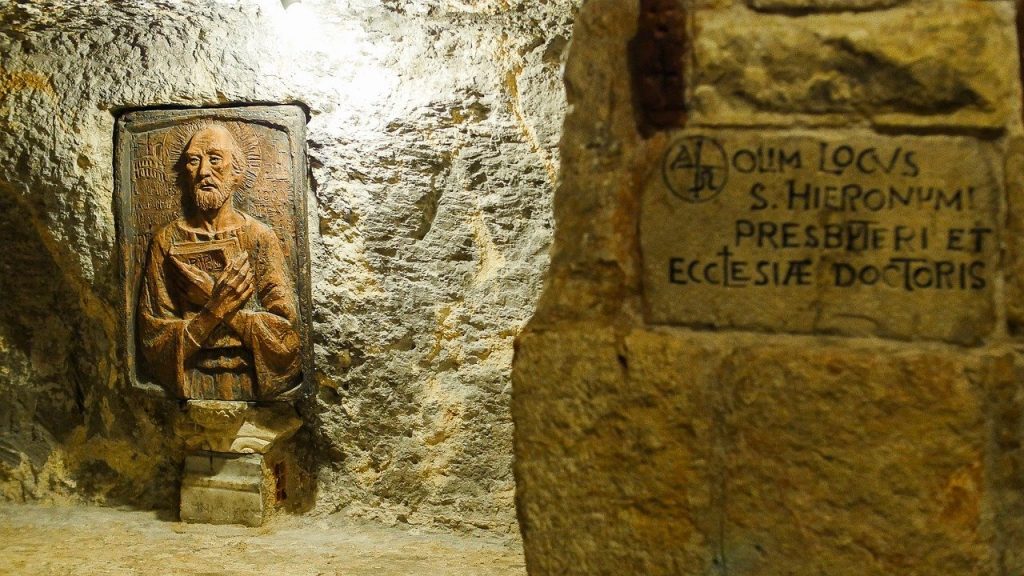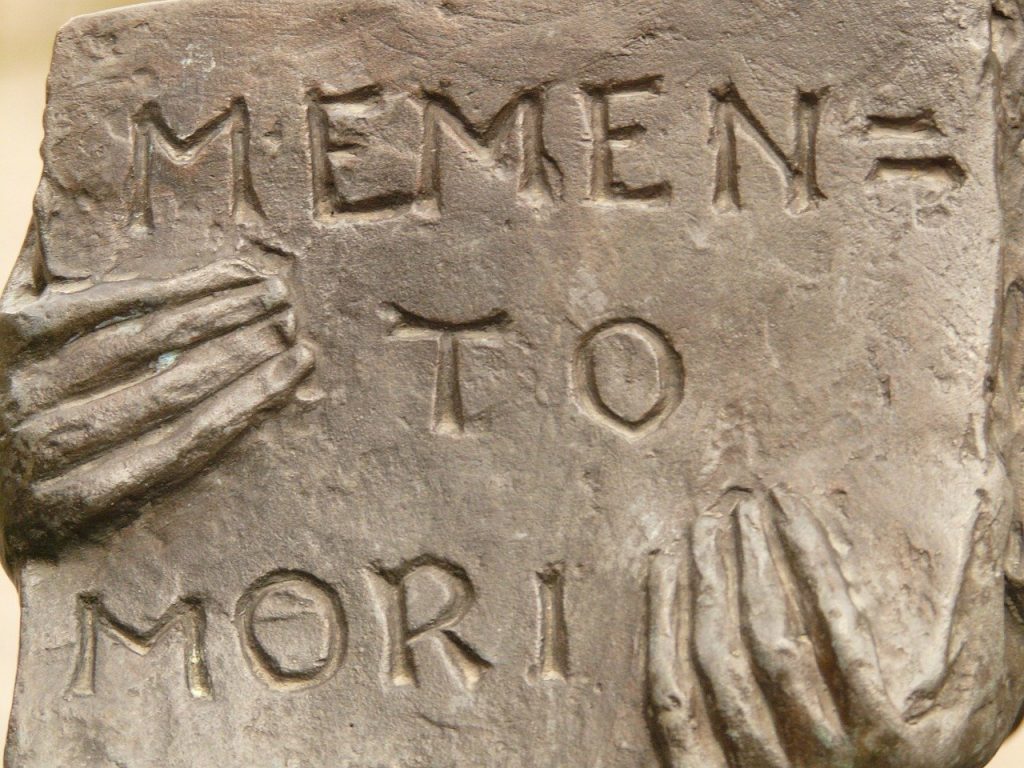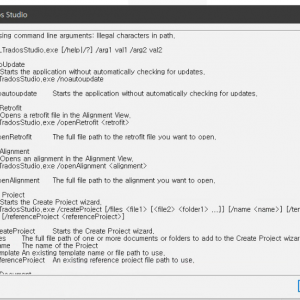
격(the case)에 대해 추가로 학습합니다. 살짝 맛본 바가 이미 있지만 이 장에서 제대로 배워 보겠습니다.
탈격(the ablative)
15a 탈격은 5c에서 본 바가 있습니다. 일부 전치사(e(x) ‘out of’, cum ‘with’ and in ‘in’)와 함께 사용되었습니다. 탈격은 대부분 전치사와 함께 사용됩니다.
다음에 정리된 내용을 살펴보십시오.
제1형 곡용 여성 명사 s a(b) puell-a: by/from the girl
pl a(b) puell-is: by/from the girls
제2형 곡용 남성 명사 s a(b) serv-o: by/from the slave
pl a(b) serv-is: by/from the slaves
제2형 곡용 중성 명사 s a(b) bell-o: by/from the war
pl a(b) bell-is: by/from the wars
제3형 곡용 남성/여성 명사 s a(b) duc-e: by/from the general
pl a(b) duc-ibus: by/from the generals
15b 즉, 제1, 2형 곡용 명사의 탈격 어미는 s -a/o, pl -is; 제3형 곡용 명사의 탈격 어미는 s -e, pl -ibus입니다. a(b)의 뜻은 ‘by’ (a person) or ‘away from’ (cf. e(x) ‘out of’)입니다. a(b)와 탈격의 결합(by a person)은 특히 수동형에서 많이 쓰입니다. 예, ab eo nuntiatum est ‘it was announced by him’.
15c 다음을 노트해 두십시오. ‘by me’ a me, ‘by you’ (s) a te, ‘by us’ a nobis, ‘by you’ (pl) a vobis, ‘by him’ ab eo, ‘by her’ ab ea, ‘by them’ ab eis.
다음의 숙어(idiom)도 노트해 두십시오. mecum with me, tecum with you, nobiscum with us and vobiscum with you
연습 문제
- 다음을 a(b) + 탈격 형태(단수 및 복수)를 만드시오. 제3형 곡용 명사의 경우 탈격 어미가 붙을 어간에 유의하십시오. Anglus, Normannus, puella, dux, miles, mulier, pater, virgo.
- 다음을 영어로 번역하시오. tu a duce coactus (cogo 3v compel의 네 번째 주요부)es in proelium ire, ego a muliere; cur Caesar mecum ire volebat?; respondens Normanno, Anglus negavit se velle ex aqua venire; ab hominibus ad palatium cum servis ducta est; Caesar a Britannia ad Galliam (Gaul) ire maluit; a militibus ad Pilatum vobiscum missi sunt; ab eis nuntiatum est Caesarem venire; homini respondens, Pilatus dixit se malle Iesum dimittere (release).
해답
- ab Anglo, ab Anglis; a Normano, a Normannis; a puella, a puellis; a duce, a ducibus; a milite, a militibus; a muliere, a mulieribus; a patre, a patribus; a virgine, a virginibus.
- You were compelled by the leader to go to battle, I by the woman; why did Caesar wish to go with me?; replying to the Norman, the Englishman said that he did not wish to come out of the water; she was led by the men to the palace with the slaves; Caesar preferred to go from Britain to Gaul; they were sent by the soldiers to Pilate with you; it was announced by them that Caesar was coming; replying to the man, Pilate said that he preferred to release Jesus.

형용사(Adjectives)
15d 지난 학습에서 ‘he was loved’는 라틴어로 amatus est, ‘she was loved’는 amata est임을 알았습니다. amatus ‘loved’는 사랑받는 사람의 성에 따라 어미가 변합니다.
이는 매우 유용한 원칙입니다. 모든 형용사(예, big, little, red, grey 등)는 수식 대상에 따라 변화합니다. 즉, 형용사는 남성, 여성, 중성 어미를 가지며 주로 묘사 대상 명사의 바로 곁-주로 뒤-에 위치합니다.
제1, 2형 곡용 형용사
15e 제1, 2형 곡용 형용사는 제1, 2형 곡용 명사의 형태(pattern)을 취합니다. 예, magn-us magn-a magn-um (향후 다음과 같이 약식 표기함 magn-us a um).
남성 명사를 수식하는 형용사 어미는 -us
여성 명사를 수식하는 형용사 어미는 -a
중성 명사를 수식하는 형용사 어미는 -um입니다.
따라서 주격 단수의 예는 miles bonus, the good soldier; virgo bona the good girl이고 주격 복수는 milites boni, virgines bonae가 됩니다.
노트해 두십시오. bon-us a um good; formos-us a um beautiful; long-us a um long, tall; magn-us a um great, big; mal-us a um wicked, evil; me-us a um my, mine; miser miser-a um unhappy; mult-us a um much (pl many); noster nostr-a um our(s); parv-us a um small (pl few); tot-us a um complete(ly), total(ly), all over; tu-us a um your(s) (when ‘you’ are one person); vester vestr-a um your(s) (when ‘you’ are more than one person).
주석. noster 및 vester은 다소 독특한 형태입니다. nostrus 또는 vestrus가 아닌 것에 유의하십시오. miser의 경우도 miserus가 아님에 유의바랍니다.
제3형 곡용 형용사
제3형 곡용 형용사는 제3형 곡용 명사의 패턴을 따르므로 남성 및 여성 명사를 수식할 때 동일한 어미를 가집니다(중성은 여기서는 일단 보류. 제16장에 표로 정리해 두었습니다) 예, puella fortis ‘the brave girl’; miles fortis ‘the brave soldier’. 이들은 모두 nav-is와 같이 곡용합니다.
노트해 두십시오. fort-is brave; omn-is all, every(one); nobil-is noble; trist-is sad.
연습 문제
다음을 영어로 번역하시오. pater tuus parvus erat; mater mea bona et nobilis fuit; omnes milites nostri, in Britannia habitantes (habito live), miseri et tristes erant; ego multos homines fortes in Gallia vidi, tu multas puellas formosas; scio ducem nostrum bonum et nobilem esse; Caesar vidit milites omnes ad palatium festinantes; cur non vidisti malam puellam tuam cum meo malo homine fugientem (fugio run off)?; o puella, ego sum totus tuus; o Angle, ego tota tua sum; ars (art) longa, vita brevis (short).
해답
Your father was little; my mother has been good and noble; all our soldiers, living in Britain, were unhappy and sad; I saw many brave men in Gaul, you (saw) many lovely girls; I think our leader is good and noble; Caesar saw all the soldiers hurrying to the palace; why did you not see your wicked girl running off with my wicked man?; girl, I am all yours; Englishman, I am all yours; art (is) long, life short.
여러분 수고하셨습니다.








